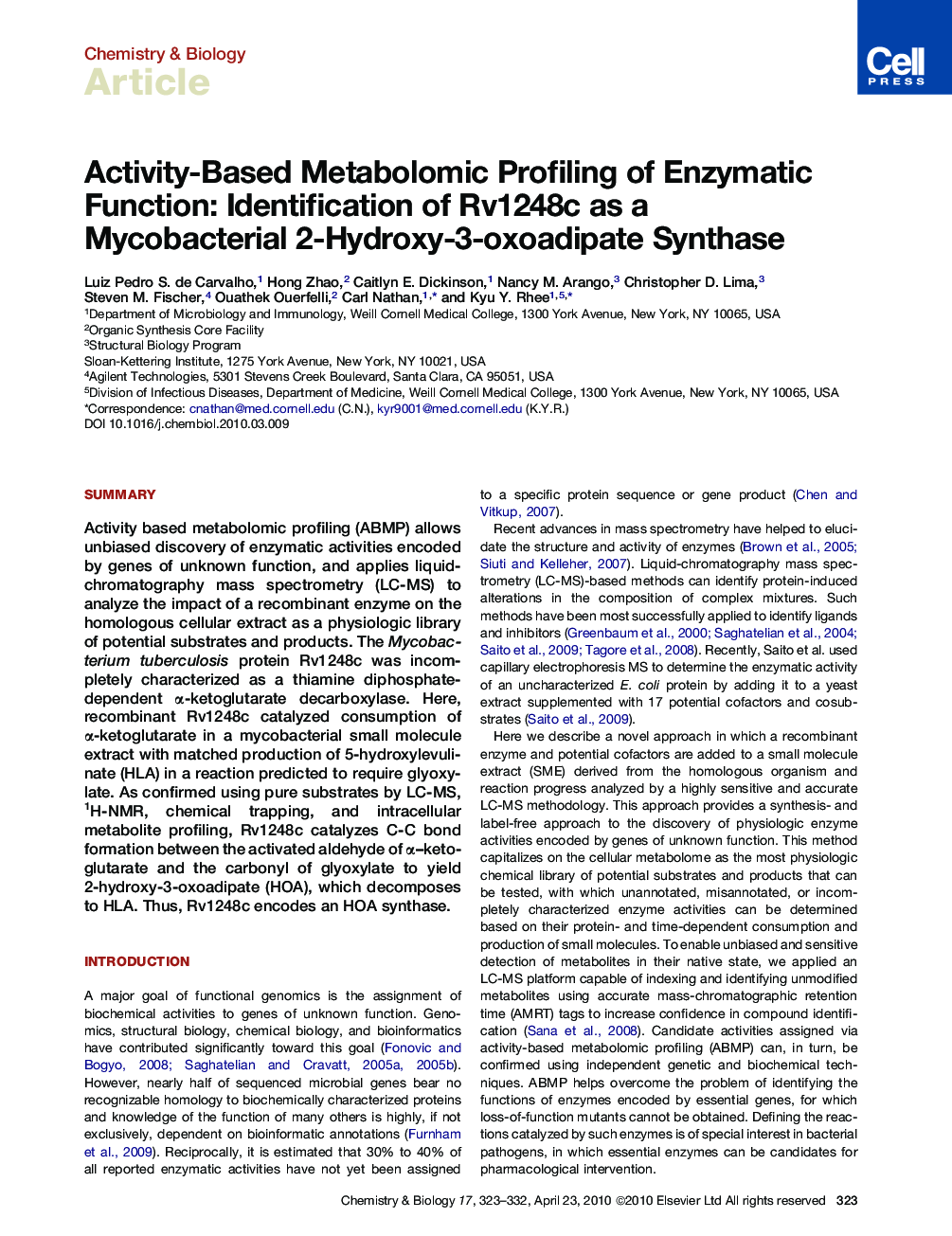| Article ID | Journal | Published Year | Pages | File Type |
|---|---|---|---|---|
| 1392533 | Chemistry & Biology | 2010 | 10 Pages |
SummaryActivity based metabolomic profiling (ABMP) allows unbiased discovery of enzymatic activities encoded by genes of unknown function, and applies liquid-chromatography mass spectrometry (LC-MS) to analyze the impact of a recombinant enzyme on the homologous cellular extract as a physiologic library of potential substrates and products. The Mycobacterium tuberculosis protein Rv1248c was incompletely characterized as a thiamine diphosphate-dependent α-ketoglutarate decarboxylase. Here, recombinant Rv1248c catalyzed consumption of α-ketoglutarate in a mycobacterial small molecule extract with matched production of 5-hydroxylevulinate (HLA) in a reaction predicted to require glyoxylate. As confirmed using pure substrates by LC-MS, 1H-NMR, chemical trapping, and intracellular metabolite profiling, Rv1248c catalyzes C-C bond formation between the activated aldehyde of α–ketoglutarate and the carbonyl of glyoxylate to yield 2-hydroxy-3-oxoadipate (HOA), which decomposes to HLA. Thus, Rv1248c encodes an HOA synthase.
Graphical AbstractFigure optionsDownload full-size imageDownload high-quality image (87 K)Download as PowerPoint slideHighlights► ABMP uses the extracted metabolome as a library of potential substrates ► ABMP does not use tagging or derivatization of compounds ► ABMP uses liquid chromatography and accurate-mass time-of-flight mass spectrometry ► Rv1248c encodes an α-ketoglutarate-glyoxylate carboligase, instead of a decarboxylase
